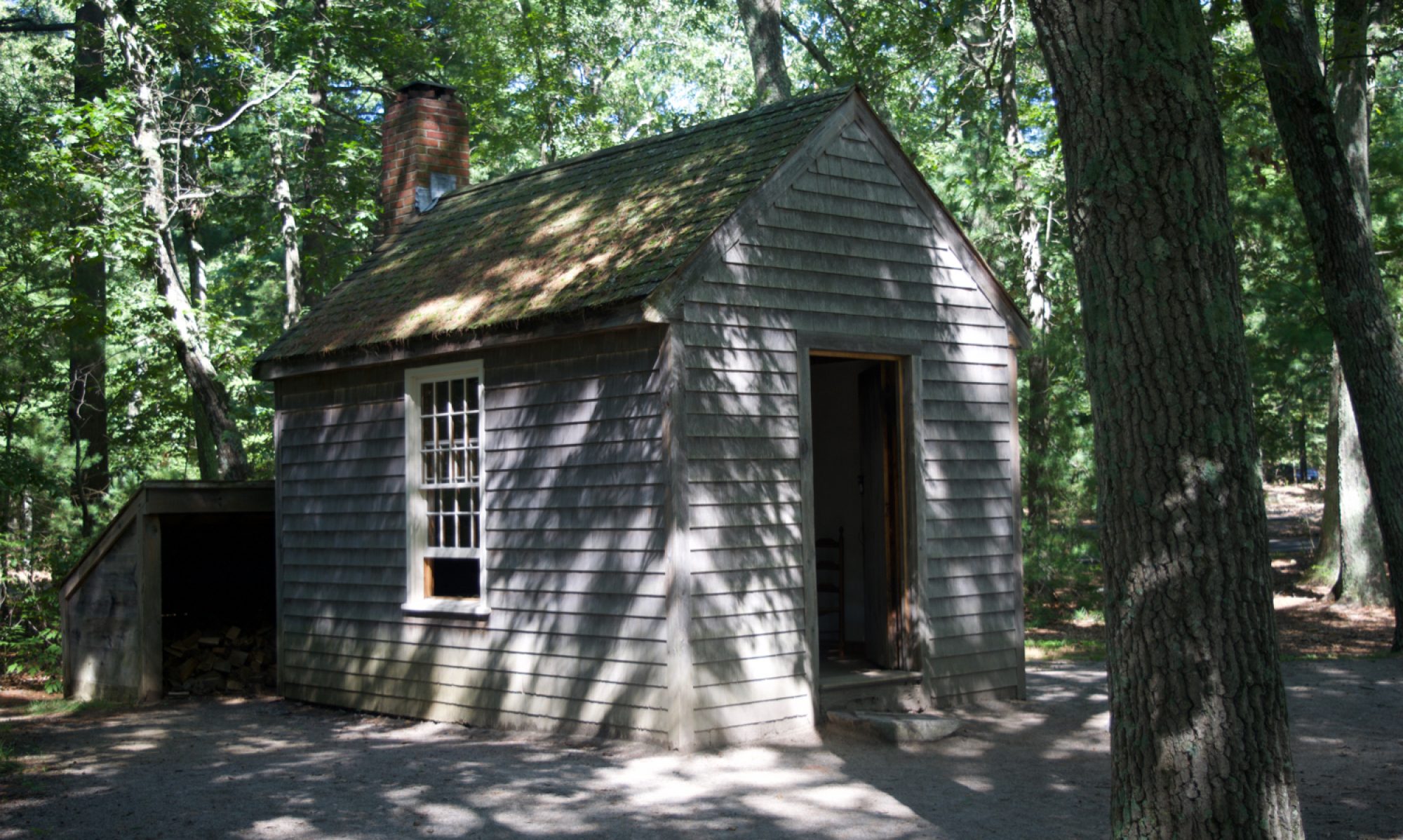
Old Copse is a 30 acre woodland in Sussex whose management since 2009 has been documented in an excellent blog by Sarah, one of its owners. In 2014 they built this Polish-style log cabin using Scots Pine trunks from the wood itself. I’m going to pick out some of the many interesting details about building the cabin, and link to her cabin posts and videos so you can dig deeper yourself.
Like many woodland owners, they wanted a shelter from bad weather when doing forestry work that would double up as a social space for themselves and visitors. In 2013 they obtained approval from the local council to build a cabin under their forestry permitted development rights. They wanted something sturdy and secure, and settled on a round wood design which is common in North America and Eastern Europe. Although they could find some Scottish and Welsh companies building them in the UK, they couldn’t find anyone nearer to Sussex and hit on the idea of looking for contacts through local Polish clubs, and were quickly put in contact with a group of log cabin builders from Poland itself who had the experience already. By February 2014 the 45 Scots Pine trees were felled and logged, and work had begun on removing the bark.
By mid and late March 2014 the logs were notched and put in place to make the walls, and the roof frame was up.
April 2014 saw the building of the roof itself. They had considered several options, including a green roof with self-seeded plants in soil, wooden shingles or “tiles”, birch poles over a waterproof membrane, and finally a “tin roof” of sheets of dark green corrugated iron. They went with this last option because they felt that it would be more in keeping with the look of a forestry building, especially once weathered, and also the least risky design. This video shows the state of the cabin in April, and it’s location in the wider wood environment:
Later in April 2014, Sarah made two posts about the process of “chinking” the gaps between the logs with little rolls of pine bark fibres to keep the wind out. This seems to have taken a long time, and she does mention some of the alternatives used elsewhere. The first post also has a picture of cast iron wood burning stove they installed and this video shows the process of chinking in more detail:
By May 2014 the stove and chimney were installed and working, and in June 2014 they were sorting out the odds and ends that make a cabin or hut more comfortable, including bits of furniture, shelve, and kitchenware. They held an official opening ceremony for friends and family, which is also shown in this video:
They seem to have got a lot out of the whole process of planning and participating in the build, and Sarah explains how having the log cabin has changed their relationship with the wood:
Already the cabin has given an idea of how managing Old Copse will be easier. BC (Before Cabin) each visit was a matter of arriving, un-packing, working like billyo, and then packing up and leaving – in a hurry if it’s started to pour down Either that, or having to stand under a dismal tarpaulin waiting for the rain to stop.
We appreciate the difference in pace now – we are visiting more, staying longer, getting a lot more essential work done, but also enjoying ‘cabin life’ – taking time to sit out on the deck with a sun downer, while listening to and seeing wild-life in the wood and on the pond.
The team of Polish log cabin builders are now set up to do more builds in the UK, and have a comprehensive website at www.sussexlogcabins.com.

My garden room project was finished by July 2013. The cabin at the Old Copse was bigger than planned apparently….I had to wait months for my planning permission. Glad I got it!